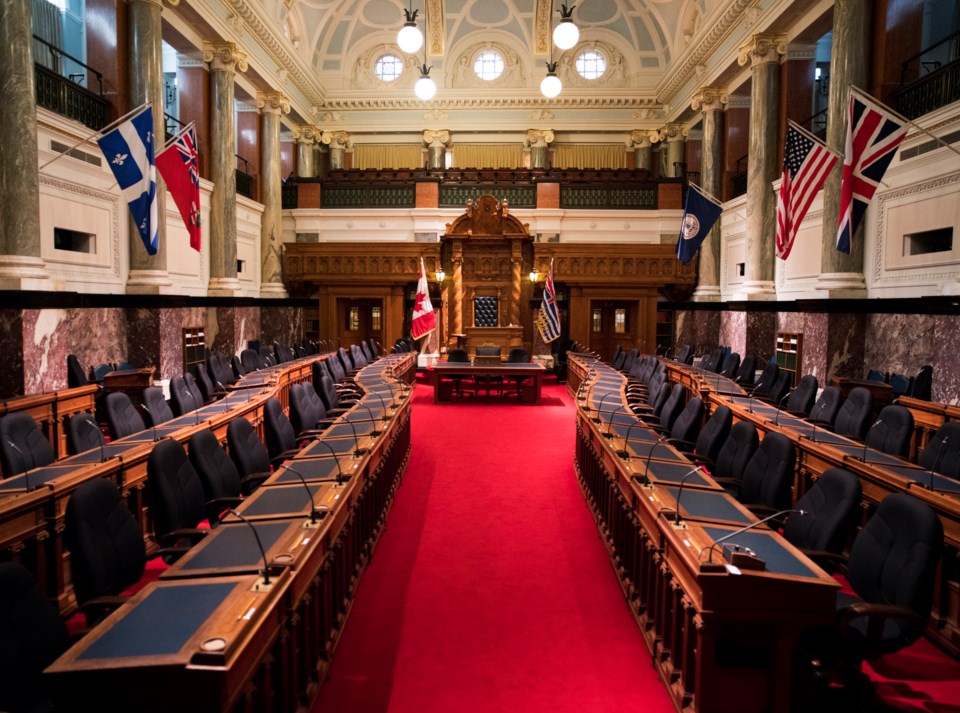The fall sitting of the B.C. legislature ended last week with tempers frayed and tensions between the parties on full public display.
The Opposition parties were understandably incensed by the NDP government’s move to cut off debate on key housing legislation in order to meet an arbitrary deadline for ending the session.
Invoking "closure" (as it is known) is hardly unique in the B.C. legislature. Governments of all political stripes have used the so-called "hammer" or "guillotine" numerous times (the NDP has done it before, and the B.C. Liberals used it more than a half dozen times when in government).
But the fact it has been done so many times before does not remove the bad smell attached to such a maneuver whenever it is invoked.
The housing legislation that was passed this fall consists of four landmark bills, all of which deserved greater scrutiny. Not only is it the biggest housing initiative in B.C. history but it also marks the biggest ever clipping of the powers of municipalities ever witnessed.
So, the Opposition parties had a perfectly valid point for crying foul about the practice.
But I suspect there were other reasons at play that help explain the frustration that was on display on the Opposition benches.
Simply put, two of the three parties seem to be in very serious trouble.
Both the B.C. United and the B.C. Green parties have not only slumped in public opinion polls, but they have fallen to such a low point that if an election were held today (or in the short term) their seat count would likely be alarmingly low.
The latest poll (from Abacus Data) pegs the support for B.C. United among decided voters at a paltry 17 per cent (which is half the vote the party received in 2020 and a whopping 23 points off their 2017 total).
The B.C. Greens have fallen to single digits, at just nine per cent (down six points from 2020 and eight points from 2017).
The NDP continues to coast along with 44 per cent support, a level any government would take in a heartbeat.
But the party to keep an eye on is the other Opposition party: the B.C. Conservative party, which Abacus pegs at 26 per cent support, a full nine points clear of B.C. United (prediction: if support for the B.C. Conservatives to climb, it betters the odds for a spring election).
The Abacus poll is not an outlier: several other top=notch pollsters (including Angus Reid and Leger) have recently reported similar findings, although the Abacus poll seems to show the B.C. Conservatives with some momentum, while the reverse is true for B.C. United.
Another revealing clue of the enormous challenge the B.C. United Party is facing was contained in a fundraising appeal sent by the party last week.
It announced the creation of what it is calling the "B.C. United Brand Awareness Fund." The fund is aimed at getting the party much better known than the near anonymity it currently finds itself mired in.
But the same appeal acknowledged there is not a single dollar in the fund. The party’s fundraising has fallen on hard times in the wake of that series of polls showing the B.C. Conservatives are at par or better than B.C. United.
The election is less than a year away and two of the alternative choices to the NDP are struggling big time. One of the other alternatives may have some wind in its sails but is still far behind the ruling party.
No wonder the NDP government didn’t blink an eye when it came to cutting off debate.
Keith Baldrey is chief political reporter for Global BC.



